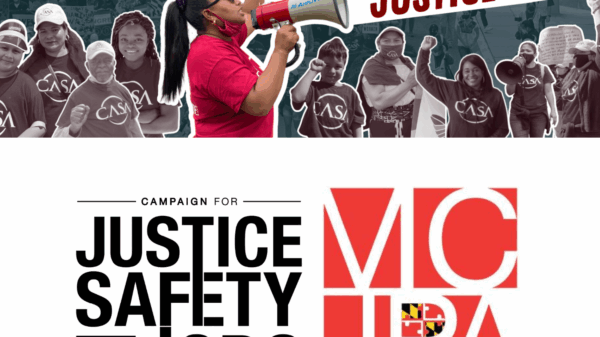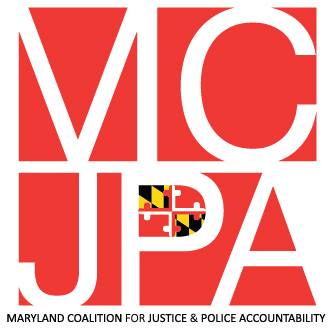ANNAPOLIS, MD – Concern is growing across the state about the Maryland Police Training and Standards Commission’s proposed emergency regulations for Police Accountability Boards (PAB) and Administrative Charging Committees (ACC) as part of implementation of the Maryland Police Accountability Act of 2021 (MPAA). That is why the 100+ organization, statewide Maryland Coalition for Justice and Police Accountability hosted a press conference to voice serious concerns and call on members of the Joint Committee on Administrative, Executive, and Legislative Review to request an emergency public hearing so there is transparency to the public about the proposals and opportunity for the public to weigh in.
MCJPA has written the MPTSC twice to detail serious police accountability concerns with their proposals, and to demand that they strike regulations related to:
- Police Accountability Board membership and eligibility requirements;
- Administrative Charging Committee eligibility, membership, and screening requirements;
- PAB and ACC confidentiality requirements;
- ACC member self-reporting requirements;
- ACC member removal requirements; and
- Prohibition on ACC charging power where discipline was already imposed.
In addition, the MPTSC’s proposed emergency regulations should impose internal deadlines, the emergency regulations should include ACC’s powers specified in the MPAA, and the proposed complainant mediation program should not be imposed until the MPTSC enacts the regulations required to establish the program and offers clear guidelines on how it will work within the new disciplinary process.
Steven Waddy, Anne Arundel NAACP, said: “Police cannot police themselves. These regulations need to have a public hearing so people who are directly affected by policing can air their concerns about these emergency regulations, which are drafted by police.”
Lydia Walther-Rodriguez, Baltimore regional director, CASA, said: “Baltimore City activist’s tireless efforts lead to the passing of a local Police Accountability Board which ensures returning citizens and immigrants could be nominated and serve on the board, while striking down any exclusive language to membership into the ACC. It is appalling to hear the Maryland Police Training and Standards Commission (an unelected body) is attempting to weaken police accountability by trying to undo community-led efforts to strengthen police oversight in local municipalities. These transactions behind closed doors will only increase community mistrust and undermine the very community who will continue to face police misconduct and brutality. We cannot stand silent to this injustice, and call for a public hearing!"
Rob Landau, Silver Spring Justice Coalition, said: “The regulations' confidentiality requirements are inconsistent with the state law's specific requirements for local leaders to establish their own criteria for these boards. The regulations will hamper the PAB's independent oversight role by muzzling PAB members on matters of urgent importance to the communities they serve.”
Yanet Amanuel, public policy director, ACLU of Maryland, said: “We object to the Maryland Police Training and Standards Commission trying to overstep the role of local governing bodies to decide for their own communities who the members should be in local Police Accountability Boards or Administrative Charging Committees. The Commission is also trying to rob communities of their opportunity to provide public comment on the proposals by calling for an emergency process and bypassing the mandatory public comment period. These proposed regulations threaten to undermine the already weak community control aspects of the Maryland Police Accountability Act and it’s critical that our concerns are addressed.”
###
Related Content

Baltimore City Police Accountability Board Signed; Community Coalitions Impact Efforts and Call for a Transparent Application Process

Police Accountability Coalition Defends Anton’s Law from Fraternal Order of Police's Secretive and Unacceptable Court Challenge
Stay Informed
Sign up to be the first to hear about how to take action.
By completing this form, I agree to receive occasional emails per the terms of the ACLU’s privacy statement.
By completing this form, I agree to receive occasional emails per the terms of the ACLU’s privacy statement.
